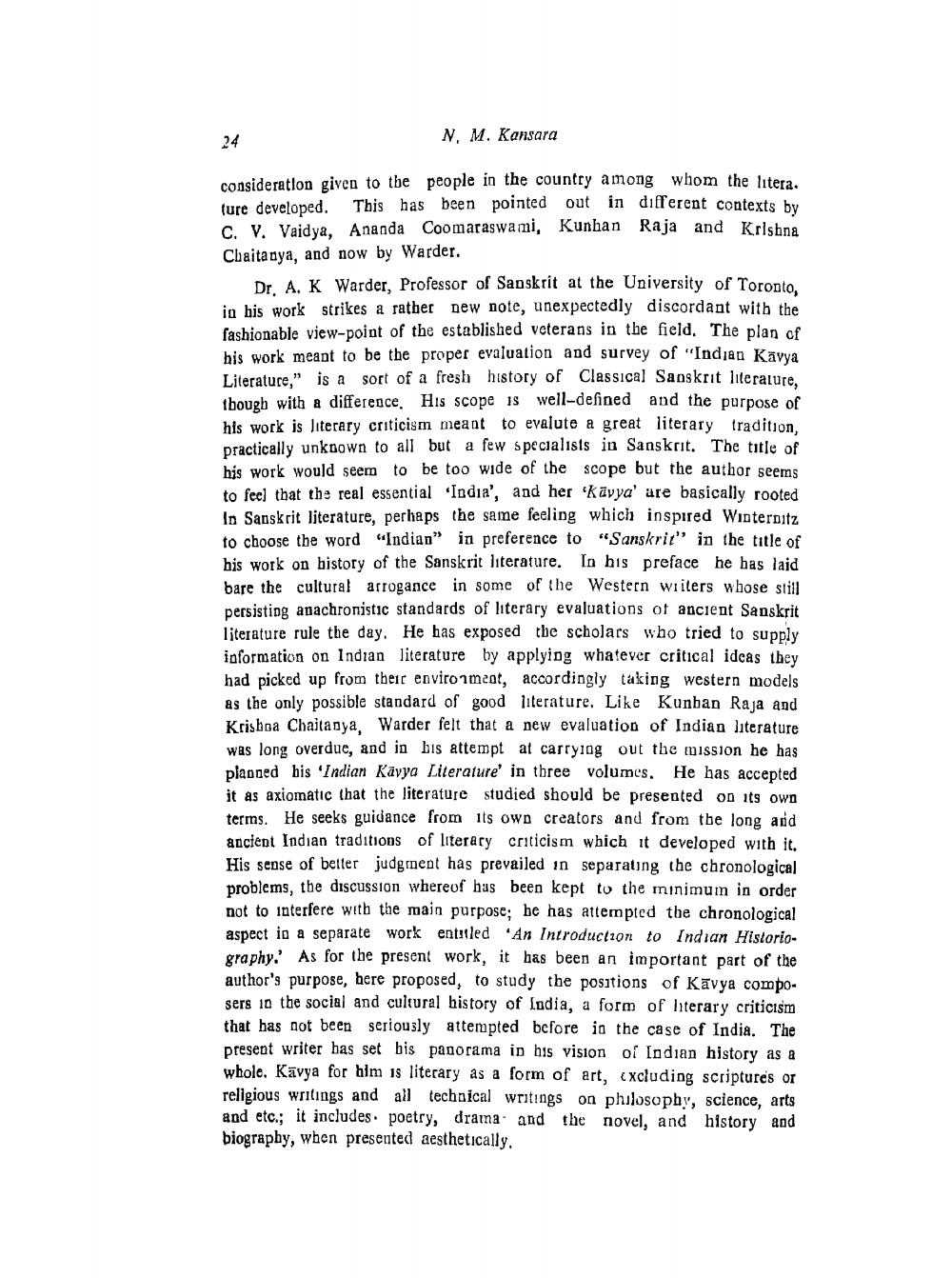________________
24
N, M. Kansara
consideration given to the people in the country among whom the litera. ture developed. This has been pointed out in different contexts by C. V. Vaidya, Ananda Coomaraswami, Kunhan Raja and Krishna Chaitanya, and now by Warder.
Dr. A. K Warder, Professor of Sanskrit at the University of Toronto in his work strikes a rather new note, unexpectedly discordant with the fashionable view-point of the established veterans in the field. The plan of his work meant to be the proper evaluation and survey of Indian Kayva Literature," is a sort of a fresh history of Classical Sanskrit literature. though with a difference. His scope is well-defined and the purpose of his work is literary criticism meant to evalute a great literary tradition, practically unknown to all but a few specialists in Sanskrit. The title of his work would seem to be too wide of the scope but the author seems to feel that the real essential 'India', and her 'Kavya' are basically rooted In Sanskrit literature, perhaps the same feeling which inspired Winternitz to choose the word "Indian" in preference to "Sanskrit" in the title of his work on bistory of the Sanskrit literature. In his preface he has laid bare the cultural arrogance in some of the Western wiiters whose still persisting anachronistic standards of literary evaluations of ancient Sanskrit literature rule the day. He has exposed the scholars who tried to supply information on Indian literature by applying whatever critical ideas they had picked up from their environment, accordingly taking western models as the only possible standard of good literature, Like Kunban Raja and Krisboa Chaitanya, Warder felt that a new evaluation of Indian literature was long overdue, and in bis attempt at carrying out the mission he has planned bis Indian Kavya Literature in three volumes. He has accepted it as axiomatic that the literature studied should be presented on its own terms. He seeks guidance from its own creators and from the long and ancient Indian traditions of literary criticism which it developed with it. His sense of better judgment has prevailed in separating the chronological problems, the discussion whereof has been kept to the minimum in order not to interfere with the main purpose; he has attempted the chronological aspect in a separate work entitled 'An Introduction to Indian Historiography.' As for the present work, it has been an important part of the author's purpose, here proposed, to study the positions of Kavya composers 10 the social and cultural history of India, a form of literary criticism that has not been seriously attempted before in the case of India. The present writer has set bis panorama in his vision of Indian history as a whole. Kavya for him is literary as a form of art, cxcluding scriptures or religious writings and all technical writings on philosophy, science, arts and etc.; it includes. poetry, drama and the novel, and history and biography, when presented aesthetically,




